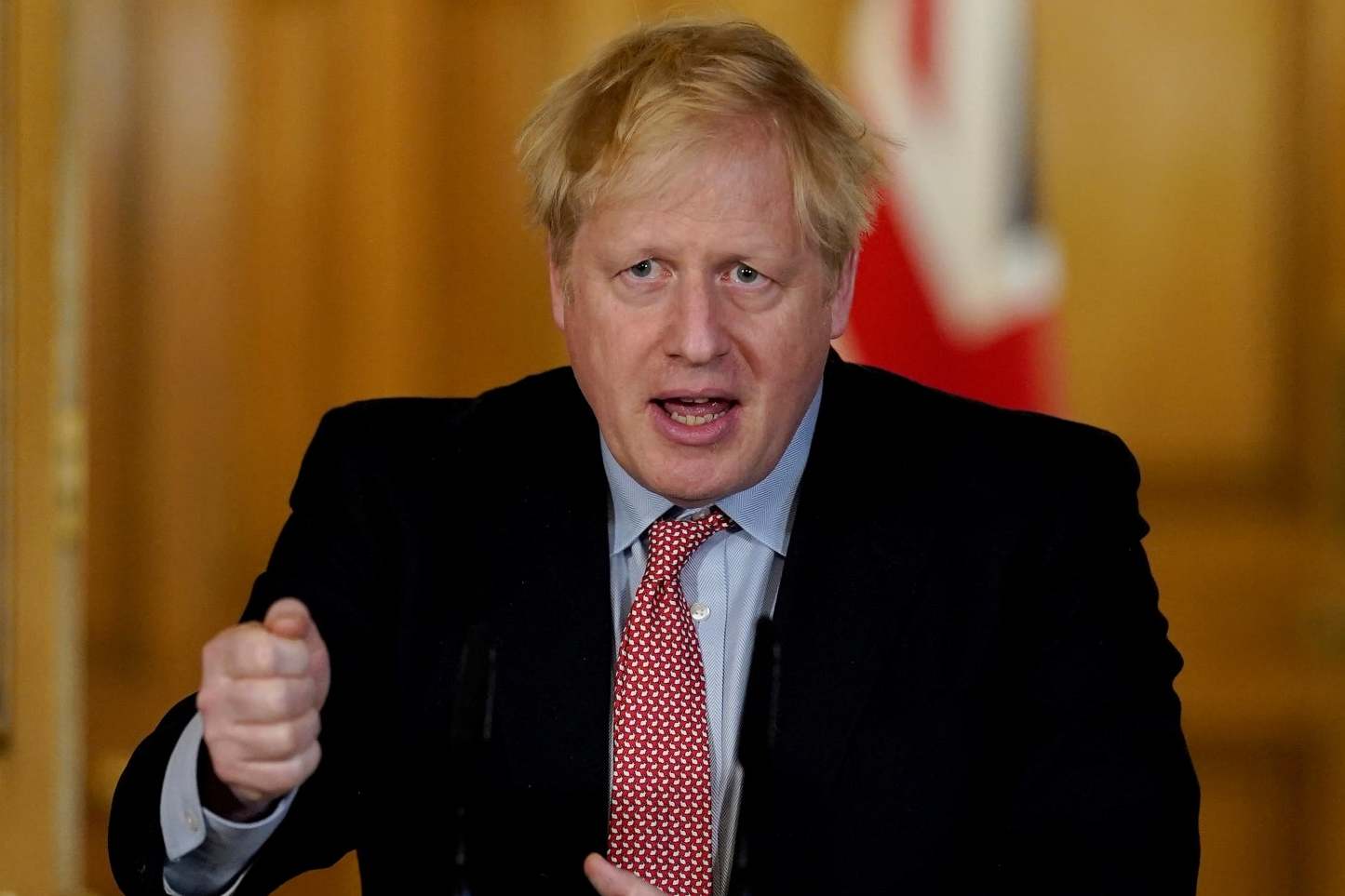Just like his hero Winston Churchill, Boris Johnson could win the war – but then lose the peace to Labour
The two patriotic Englishmen have much in common. Both prolific wordsmiths but seen by critics as politically incorrect, the prime minister will nevertheless want to avoid the ultimate comparison by losing the next election, writes Andrew Grice


Boris Johnson has always encouraged parallels between himself and his hero Winston Churchill. He wrote a flattering biography of the UK’s wartime leader in 2014, widely seen at the time as a vanity project to promote his own ambition to be prime minister.
I’ve just read The Churchill Factor. I thought it might provide some clues to Johnson’s handling of his “war” against coronavirus, and it does. He thought his own battle, to “get Brexit done,” had been won. How small the biggest story of my life as a political journalist feels today. Now Johnson knows he will be judged by his performance in his country’s biggest crisis since the Second World War.
“He saved our civilisation,” Johnson wrote of Churchill. “The point ... is that one man can make all the difference.” He noted that leaders from Margaret Thatcher and Nelson Mandela to Fidel Castro tried to “ape” Churchill because his story is “bigger and more inspiring than a mere political creed. It is about the indomitability of the human spirit.”
There we have it: this is surely how Johnson aspires to emulate his hero.
The two patriotic Englishmen have much else in common. The boundless energy, drive and optimism, which is being sorely missed in Johnson’s absence now. The ability to connect with people and raise their spirits. (Johnson said of Churchill: “He couldn’t just exhort them to be brave. He needed to engage their attention, to cheer them, to boost them.”) There’s no doubting their personal popularity; few politicians are known by their Christian names like “Boris,” although babies are not yet being named after him as they were “Winston”.
Both voracious readers, prolific wordsmiths, but seen by critics as politically incorrect. Johnson broadly defends Churchill’s outspoken remarks on women and race, insisting they were “filleted”, just like his defence of his own controversial words about Muslim women. A sharp wit, a love of food and drink. Although Johnson would not agree, some think he shares Churchill’s “Titantic ego”.
Now there is another parallel. Churchill covered up a mild heart attack while visiting the White House during the Second World War, and in later years hid his pneumonia and a severe stroke from the public. The suspicion among Westminster journalists is that Johnson and his officials were not fully transparent about his “mild symptoms” of coronavirus, a charge they strongly deny. Such cover-ups, even in the “national interest”, are thankfully not possible in today’s media world. Probably Johnson was desperate not to show weakness in the macho world of politics, and paid a heavy price for soldiering on when he should have rested.
Inevitably, Johnson puts his own gloss on Churchill’s 1946 call for a “united states of Europe”, which was much discussed during the Brexit debate. He accepts that if his hero had remained in power, he would (unlike Clement Attlee’s Labour government) have been at the table as the EU’s foundations were built. “Who knows, we might have had a different model of the EU today; more Anglo-Saxon, more democratic,” Johnson wrote. (If so, David Cameron would probably still be prime minister.)
Johnson said Churchill’s idea was that Britain “transcended Europe” and was “turned to face the rest of the world”. Yet he failed to convince me his hero would be on the same page as him today. He cited Churchill’s 1950 Commons speech that Britain could not be “an ordinary member” of a federal union, but should be “intimately associated with it”. I don’t see how the latter squares with the hard Brexit and trade friction Johnson now advocates. He conceded that “as a lifelong liberal free marketeer”, Churchill “would have supported free trade across a giant tariff-free zone”.
Boris will be desperate to avoid one parallel. Churchill won the war but lost the peace, receiving no thanks from voters at the 1945 election as people turned to Labour to introduce the welfare state. Some Tories fear history will repeat itself after the current crisis. Labour might look the natural party for an era of big-state solutions, in which public services and servants are belatedly valued, especially as it now has a credible prime minister-in-waiting in Keir Starmer.
Last Sunday, it was the Queen who emerged as the Churchill-like inspirational figure, channelling today’s wartime spirit in her moving broadcast to the nation – ironically, screened just after Johnson was admitted to hospital.
Yet there could be another twist in this tale. With Johnson thankfully out of intensive care, we can be hopeful he makes a full recovery, after the proper rest he denied himself initially. He might win, and even deserve, public sympathy and support for having beaten the virus personally as well as in his role as the country’s figurehead. At the inquest into the government’s preparedness for and response to the crisis, Johnson will have some very difficult to questions to answer, but people will now be more prepared to give him the benefit of the doubt.
This is not the war he envisaged or wanted, but it might yet provide his Churchill moment.
Join our commenting forum
Join thought-provoking conversations, follow other Independent readers and see their replies
Comments